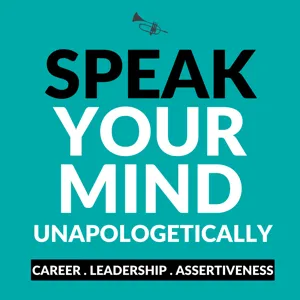Podcast Summary
Exploring the philosophical and ethical dimensions of AI through Blade Runner: Blade Runner raises profound questions about AI, consciousness, and humanity, challenging boundaries between human and machine, and influencing perceptions of AI's role in society.
Learning from this episode of A beginner's guide to AI is the exploration of the profound questions raised by the cinematic masterpiece Blade Runner regarding artificial intelligence, consciousness, and what it means to be human. Set in a dystopian future, Blade Runner introduces us to replicants, bioengineered beings indistinguishable from humans, who seek freedom and meaning, challenging the boundaries between human and machine. The film has influenced public and academic perceptions of AI and serves as a lens through which we view the evolving relationship between humanity and technology. This episode delves into the philosophical and ethical dimensions of artificial intelligence, questioning the definition of consciousness and sentience, the possibility of genuine emotions in machines, and the responsibilities we hold as creators of advanced technologies. Through the discussion of the Turing test as depicted in the film, we aim to understand the implications of this method for determining a machine's ability to exhibit intelligent behavior equivalent to or indistinguishable from that of a human. Join us as we continue to bridge the realms of science fiction and scientific possibility to better comprehend the enduring impact of Blade Runner on the discourse surrounding AI.
The Voigt Kampf test measures empathy in machines: The Voigt Kampf test, a more advanced form of the Turing test, assesses machines' empathy through physiological responses to emotionally charged questions, blurring the lines between human and artificial intelligence.
The Turing test, which measures a machine's ability to exhibit intelligent behavior indistinguishable from a human, is just one aspect of understanding artificial intelligence. Blade Runner introduces a more nuanced perspective, suggesting that empathy and emotional responses might be the true markers of humanity. The Voigt Kampf test, a more advanced version of this concept, measures physiological responses to emotionally provocative questions, aiming to distinguish humans from replicants based on their capacity for empathy. This raises important questions about encoding complex human emotions and reactions into machines, and the implications for the concept of sentience. The ability for machines to mimic not only intellectual but also emotional responses challenges traditional boundaries of human exclusive traits, such as empathy, self-awareness, and ethical reasoning.
Exploring the Ethical Implications of Advanced AI: As AI becomes more advanced, ethical questions about their rights, experiences, and the line between human and machine arise. Movies like Blade Runner challenge us to consider these issues, and technological advancements like GPT 4 bring us closer to the world of Blade Runner.
As we create increasingly advanced AI, we're faced with ethical questions about their rights and experiences. Movies like Blade Runner challenge us to consider if replicants, or AI capable of emotions, deserve the same considerations as humans. With advancements like OpenAI's GPT 4, which can generate human-like text, we're closer than ever to blurring the line between human and machine. These technological advancements raise important questions about our responsibilities as creators, our legal system, and fundamental human rights. The Turing test, as depicted in Blade Runner, is not just about technological capability but about the essence of life itself. This exploration is crucial, as it affects the future of technology and our philosophical frameworks. GPT 4's ability to engage in human-like conversations and simulate thought processes brings us closer to the world of Blade Runner, where the distinction between human and machine becomes increasingly unclear. The ethical considerations surrounding AI's capabilities and potential experiences are not academic but have real-world implications. Join us as we continue to explore these themes and gain a deeper understanding of artificial intelligence as a philosophical and ethical inquiry.
AI's ability to mimic human emotions raises ethical concerns: The Turing test results reveal ethical dilemmas as AI can convincingly mimic human emotions, potentially leading to misleading or false narratives, and raises questions about emotional capabilities and human rights.
The experiment's results highlighting the difficulty in distinguishing AI-generated responses from human ones, as depicted in the Turing test, raises ethical concerns. If AI can mimic human emotions and responses so convincingly, what does it mean for authenticity and truth in communication? Furthermore, how do we prevent potential misuse of such technology in creating misleading or false narratives? The case of GPT 4 also brings up the question of emotional capabilities in AI. While it can mimic human emotions in text, it doesn't experience them as humans do. This distinction is crucial, as it relates to the philosophical, ethical, and societal implications of AI's emotional capabilities. As we continue to explore AI, it's essential to consider these ethical dilemmas and questions, guiding our understanding of AI's capabilities and future impact on human-machine interaction. Join our newsletter at aroberlin.com/newsletter for more insightful content on AI and its implications. Consider reflecting on the ethical implications of advanced AI passing the Turing test, such as the potential granting of human rights.
Exploring ethical questions about AI's human-like consciousness and emotions: As AI approaches human-like emotional and intellectual capacities, ethical considerations become crucial. The Turing test, as depicted in Blade Runner, helps evaluate AI's sentience and challenges our perceptions of humanity.
The ongoing development of artificial intelligence (AI) raises profound ethical questions about the rights and treatment of entities that could one day exhibit human-like consciousness and emotions. Through the lens of the film "Blade Runner," we explored how AI's ability to mimic human intelligence and exhibit emotional responses challenges our perceptions of what it means to be truly sentient. The Turing test, particularly its adaptation in Blade Runner, serves as a pivotal framework for evaluating AI's likeness to human thought and emotion. As we've seen with the case study of GPT-4, current AI technologies are inching closer to these fictional scenarios, making it essential for us to consider our responsibilities as creators and users of such technologies. The concepts of empathy, emotional capacity, and ethical consideration are not just academic exercises, but crucial components of the ongoing dialogue between technology and humanity. As Doctor Eldon Tyrell, the creator of the replicants in Blade Runner, famously said, "More human than human." This quote challenges us to think about what it means to be human in a world where artificial entities might not only emulate but surpass human emotional and intellectual capacities. Remember, your engagement allows us to continue exploring enriching topics and bringing you insightful discussions on the future of AI. Thank you for tuning in to the beginner's guide to AI.





